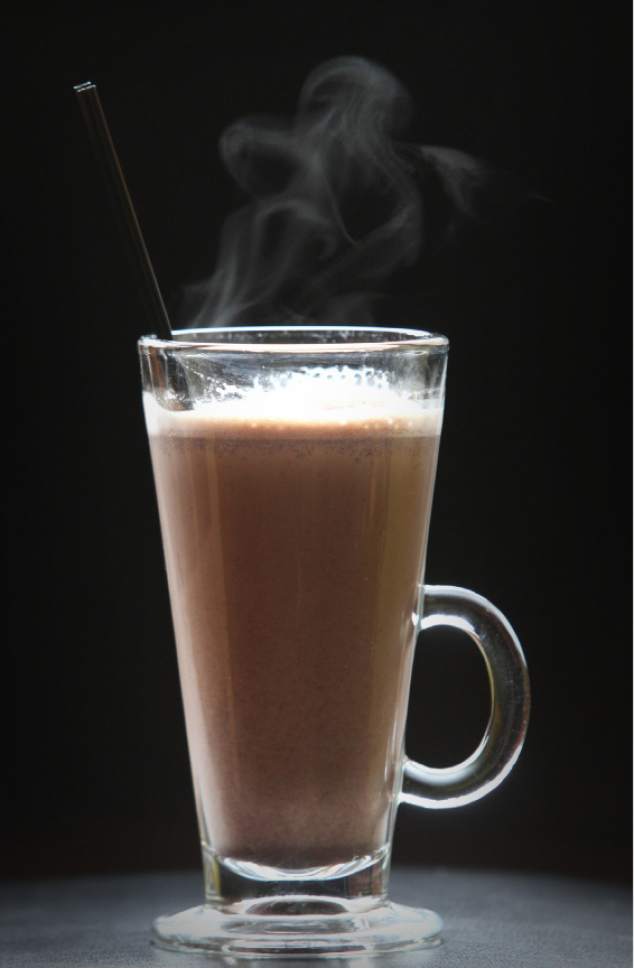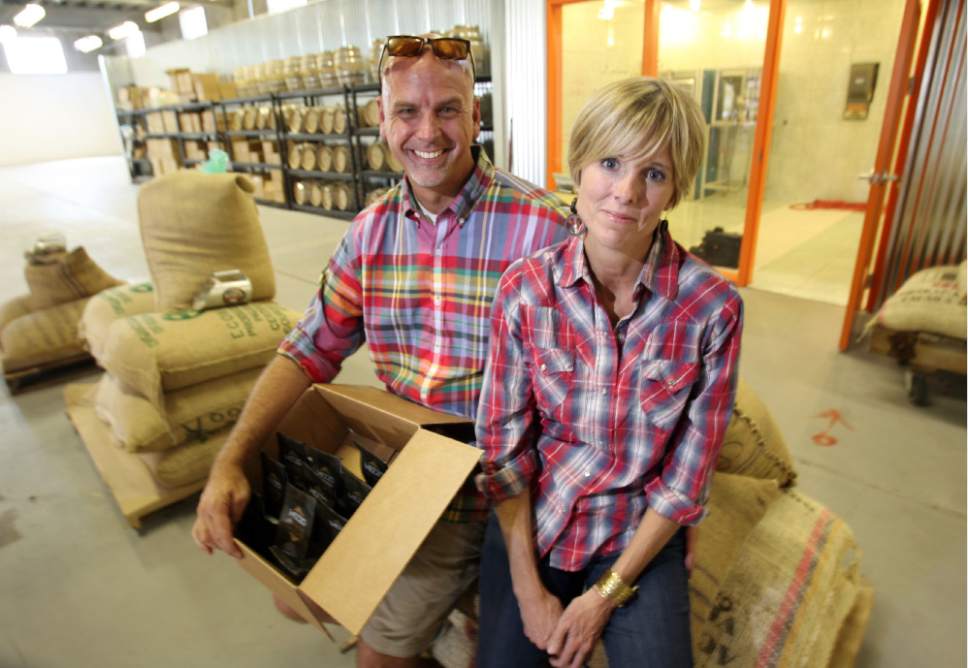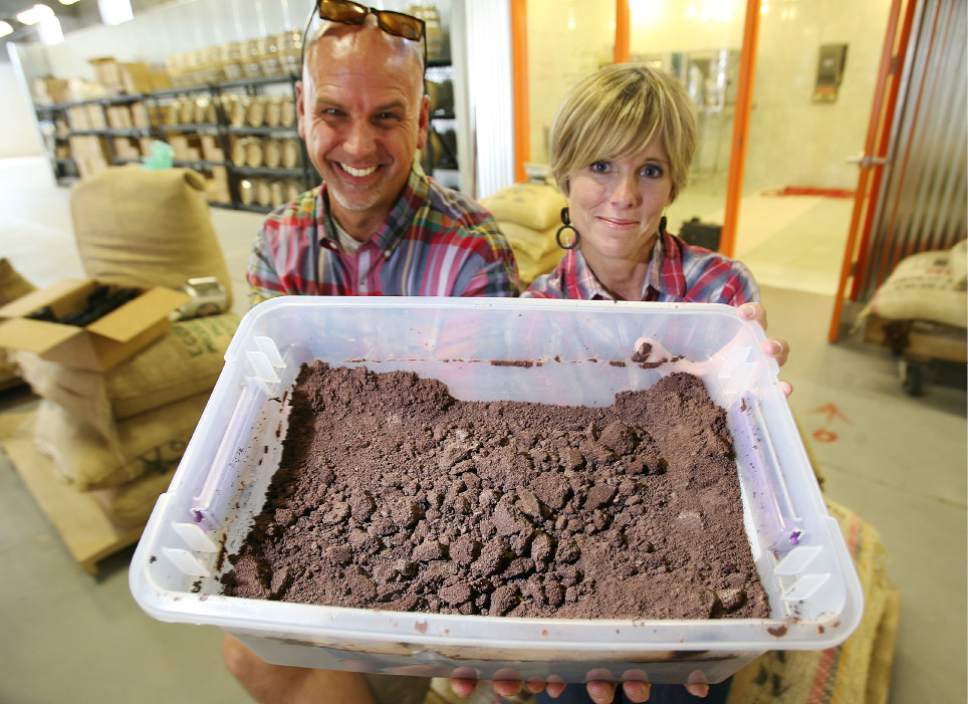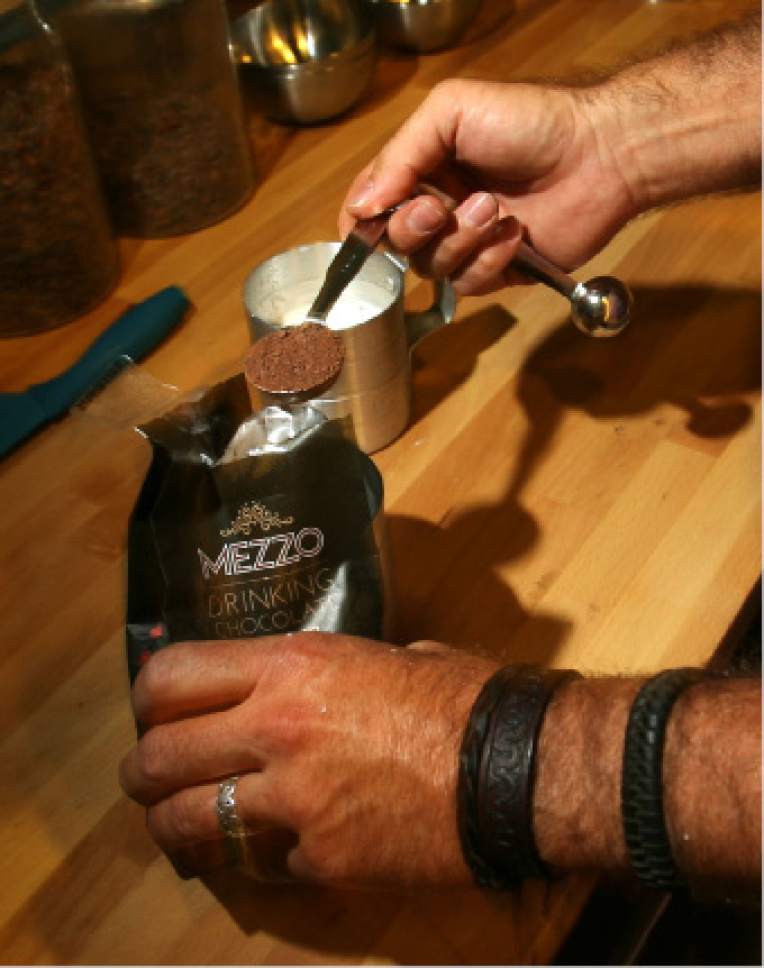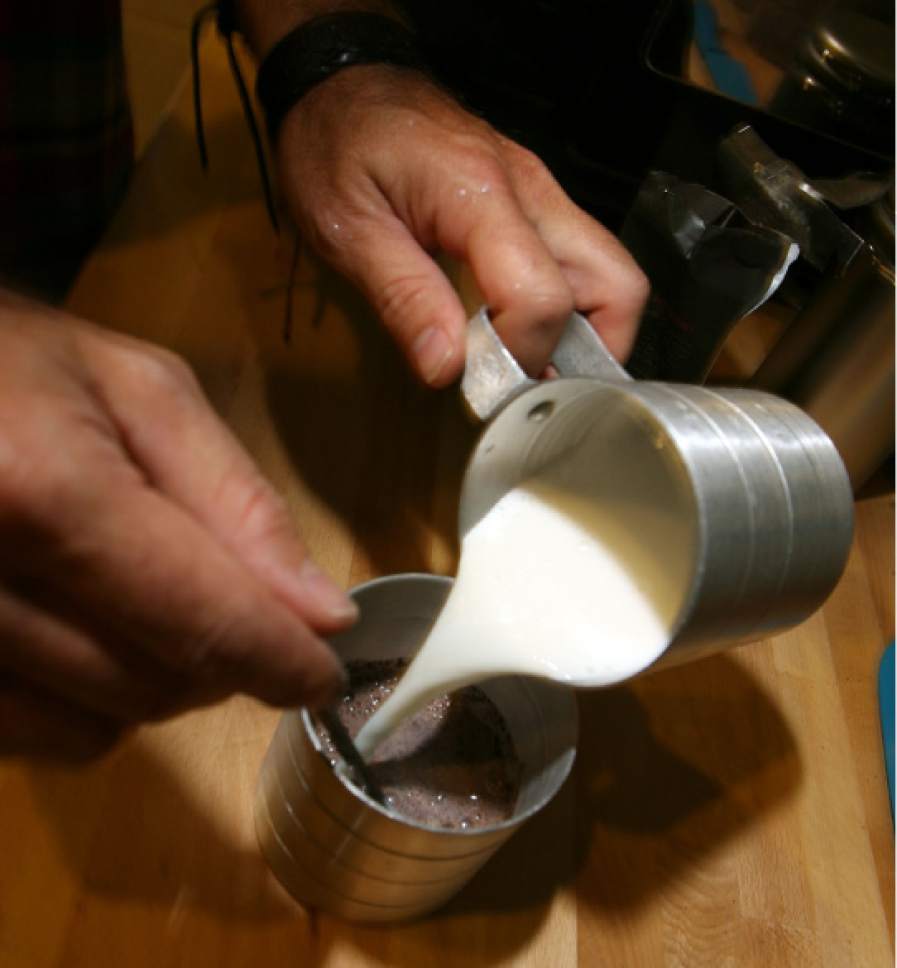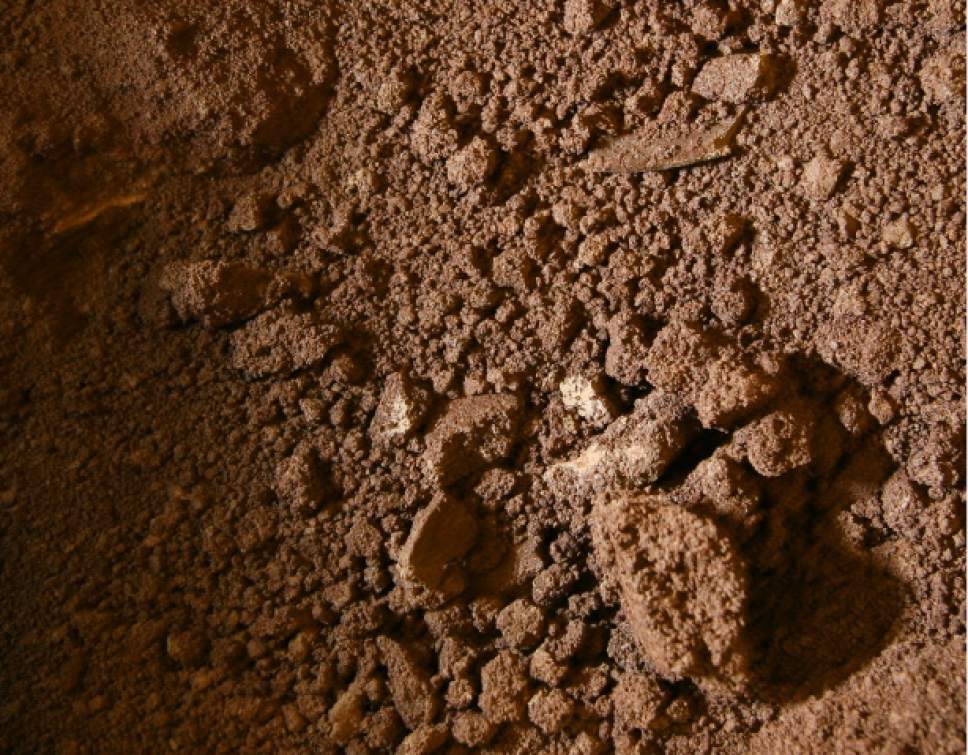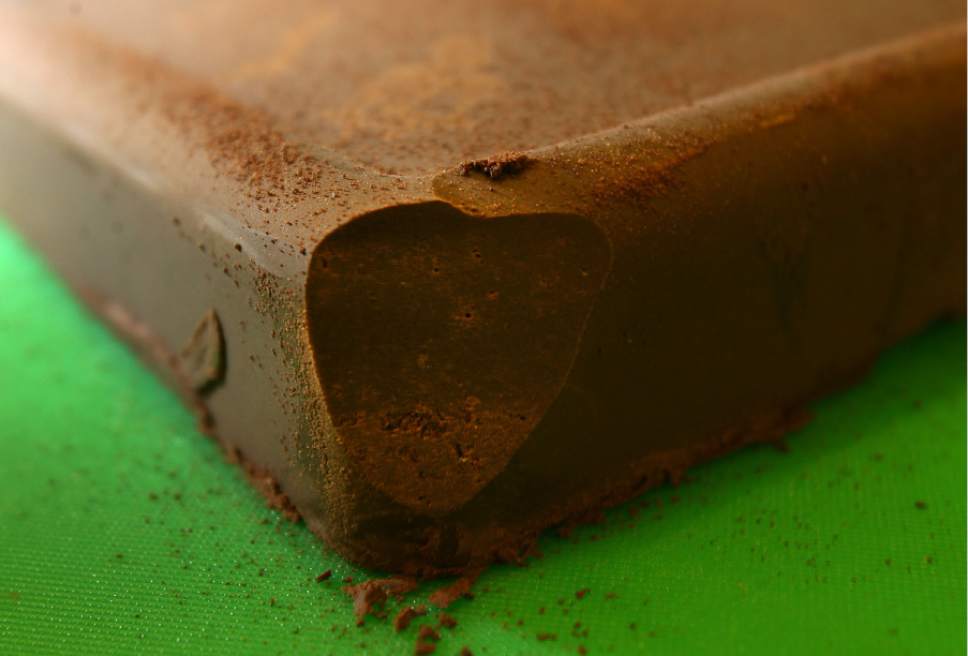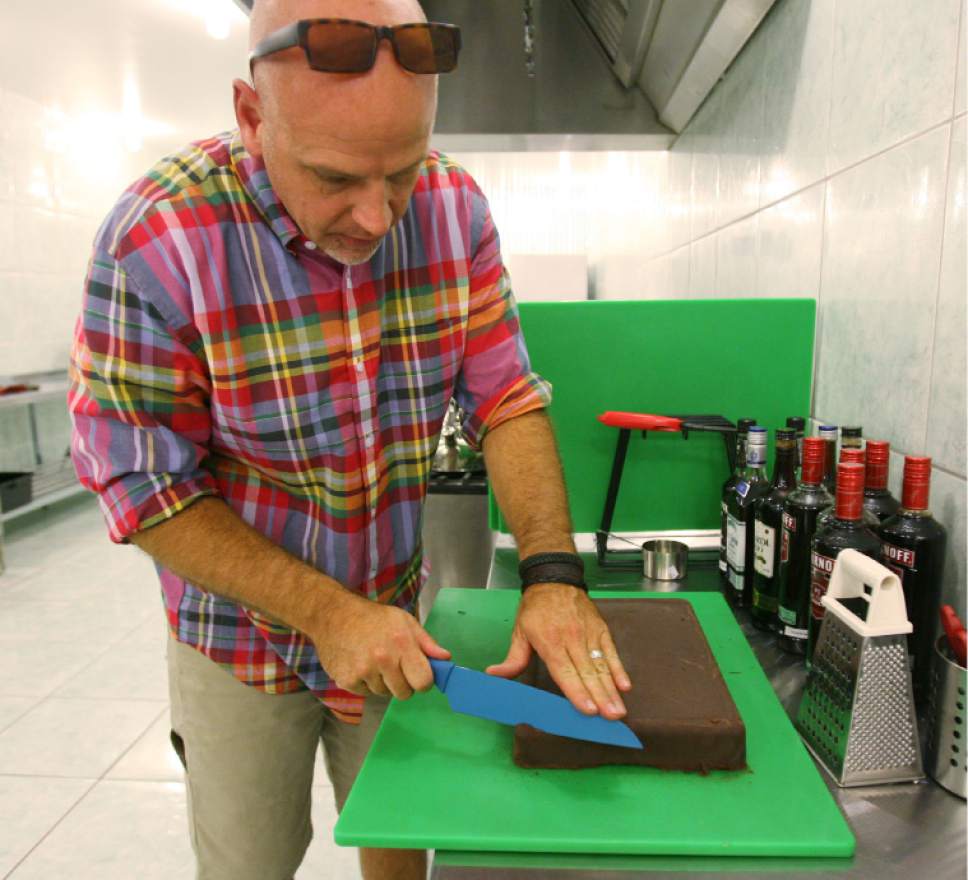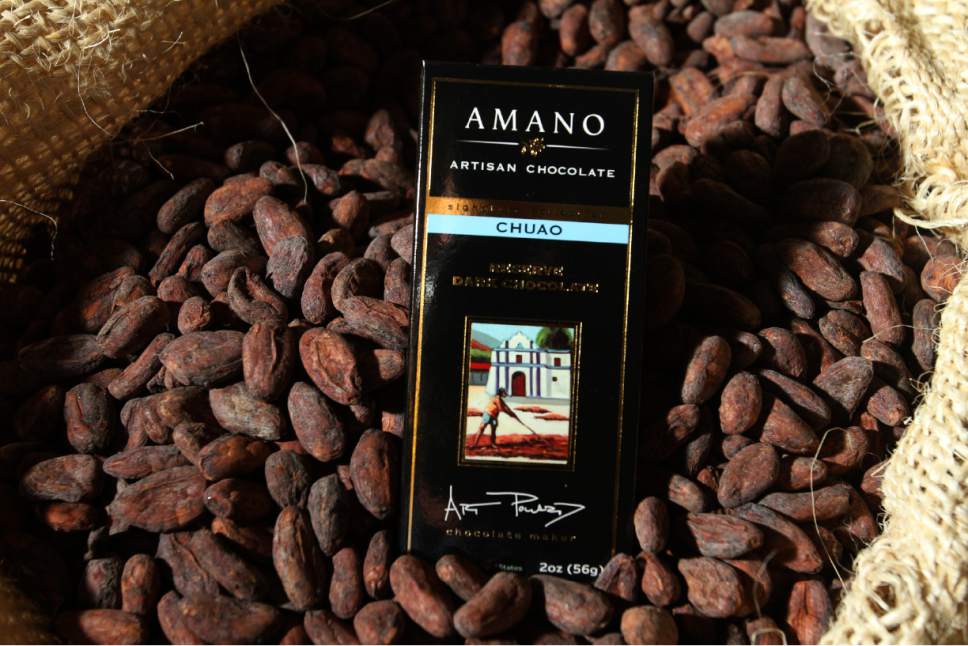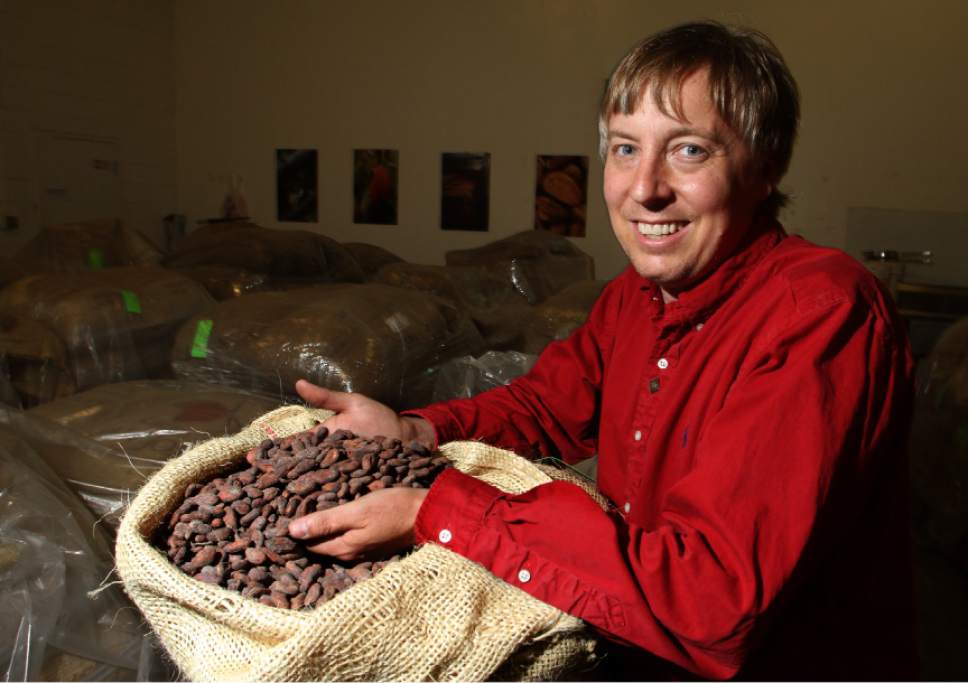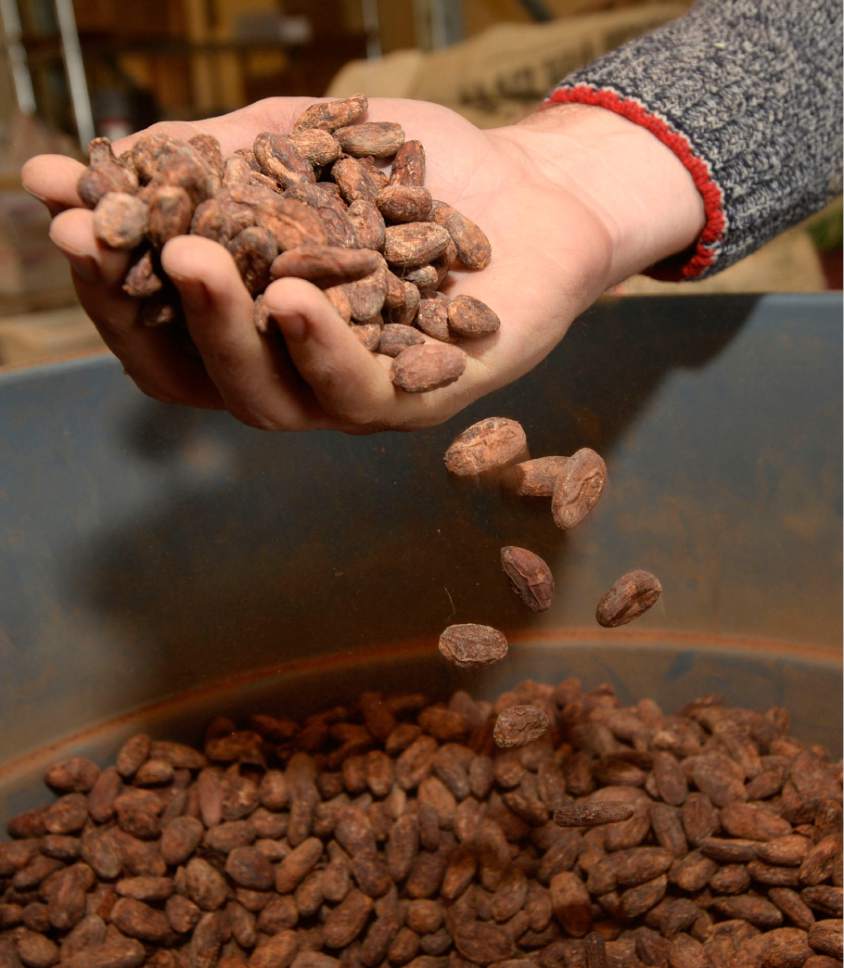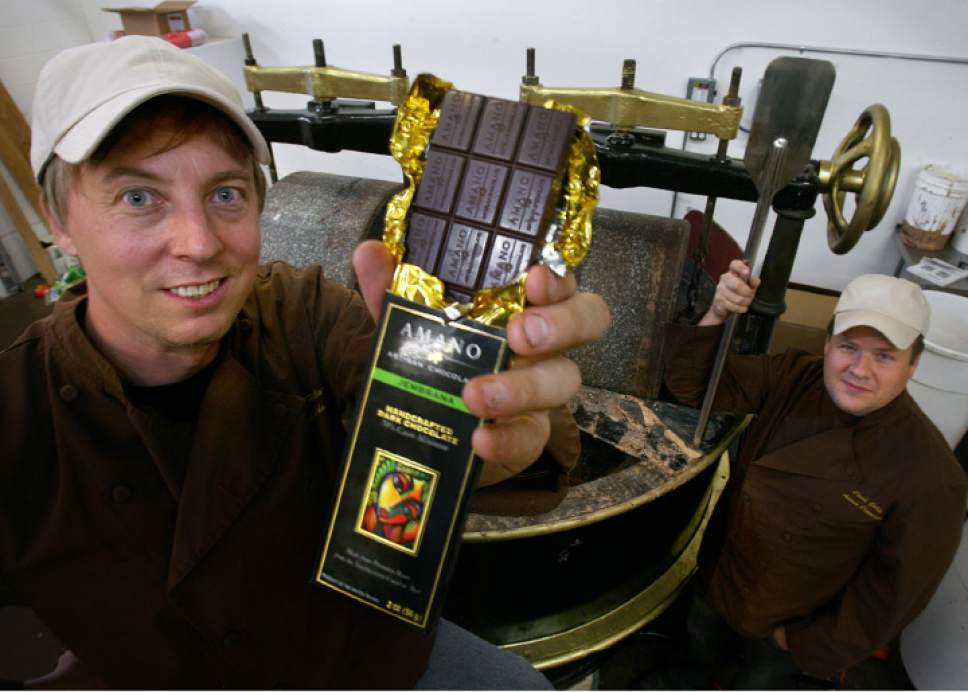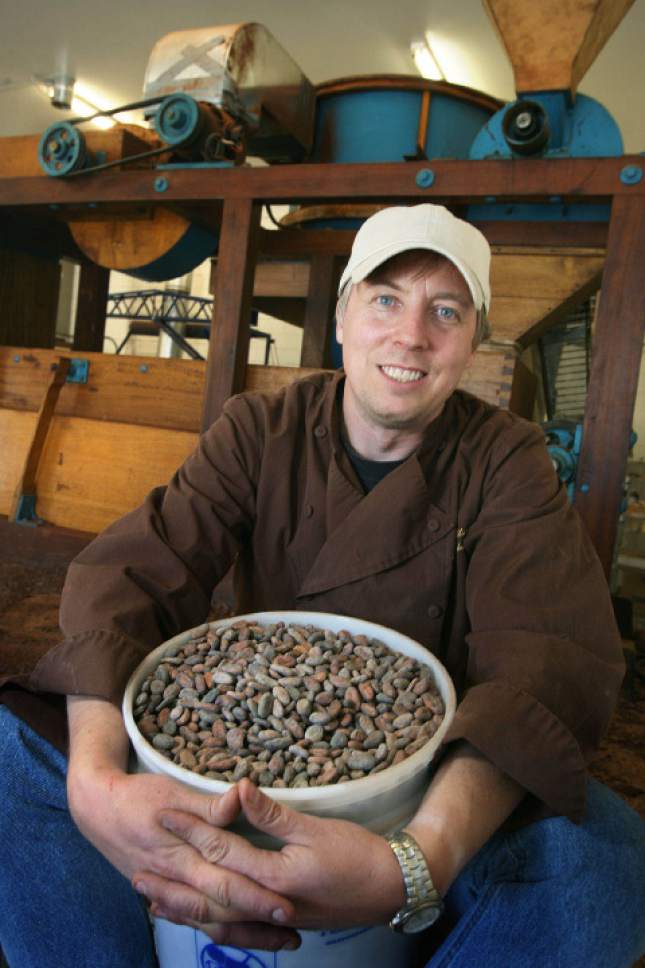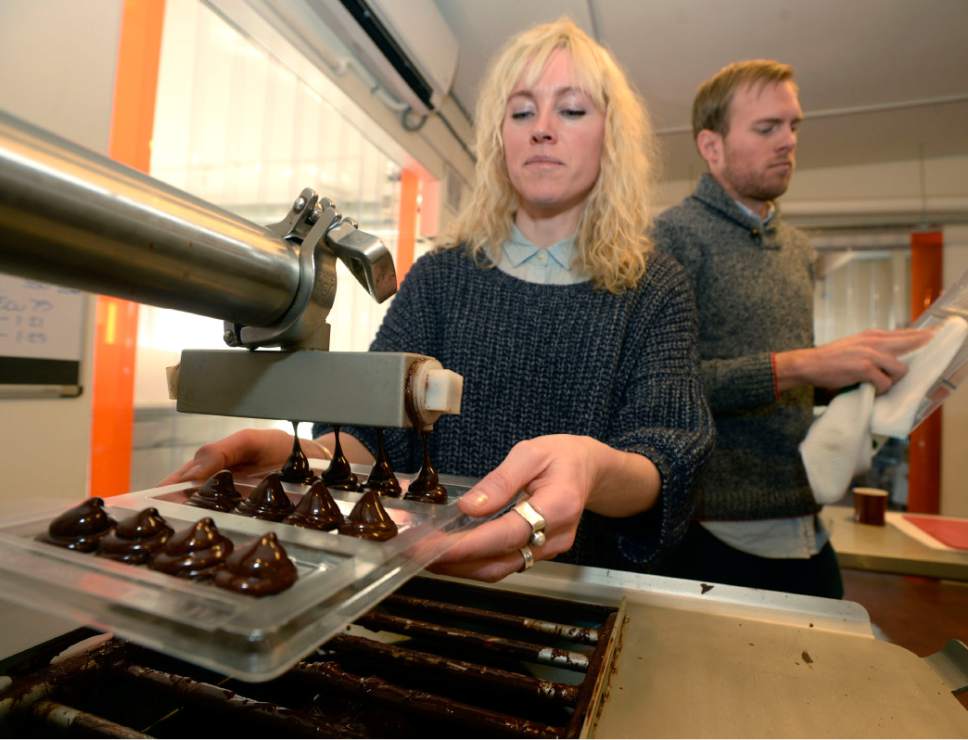This is an archived article that was published on sltrib.com in 2017, and information in the article may be outdated. It is provided only for personal research purposes and may not be reprinted.
One expects to find artisan chocolate producers in Seattle, San Francisco and Portland.
But few would imagine three Utah cities — Salt Lake City, Park City and Orem area — are home to seven bean-to-bar chocolatemakers.
It's an inordinate number for Utah's midsize population and enough of a quirk that last year Saveur magazine called the Wasatch Front the "country's epicenter of chocolate innovation."
"In Utah, we are really good chocolatemakers," said A.J. Wentworth, owner of the Salt Lake City's Chocolate Conspiracy, "and we've all been recognized in some way or another."
Utahns can learn about and sample some of these award-winning small-batch chocolate bars on Saturday and Sunday during the Natural History Museum of Utah's Chocolate and Cheese Festival. (See box for details.)
Utah is part of a growing national trend where producers make chocolate using the "bean-to-bar" process. That means they ship cacao beans from some of the world's best growing regions — think Ecuador, Peru and Venezuela — then roast, grind and infuse their own flavors into the mostly dark-chocolate bars, leaving out the refined sugars, artificial ingredients and preservatives found in drug-store brands.
Here's a taste of the bean-to-bar producers putting Utah on the artisan chocolate map.
Amano
Since he launched his Orem company in February 2007, Art Pollard's single-bean chocolate bars have earned numerous international awards. He was the first U.S. maker to use the rare Venezuelan Chuao bean, a coup that elevated him to the upper echelon of international chocolatemakers. Details: http://www.amanochocolate.com
Chocolate Conspiracy
A.J. Wentworth aims for the healthiest chocolate possible, using organically grown cacao beans sweetened with raw, unfiltered Utah honey, at his Salt Lake City business. The bars are made with other natural ingredients and come in unique flavors such as wild spice and blackberry ginger. Details: eatchocolateconspiracy.com
Durci
After finding success in Lindon with Crio Bru, a beverage made from roasted and ground cocoa beans, Utah County chocolatier Eric Durtschi launched a line of artisan chocolate bars made with beans sourced from Ecuador, Dominican Republic, Peru and Venezuela. Details: durci.com
Mezzo
Cacao beans from around the globe are used by this Salt Lake City producer to make rich, dark drinking chocolate. Not be confused with everyday hot cocoa, Mezzo is 65 percent to 75 percent pure cacao bean, mixed with organic cane sugar and vanilla. True to Mayan tradition, herbs, spices and chiles also are added. Details at mezzochocolate.com
Millcreek Cacoa Roasters
For its signature chocolate, this Salt Lake City producer uses Arriba Nacional cacao beans from Ecuador, harvested from mature, wild trees at high elevation. The deep roots draw in minerals from rich volcanic soil, which in turn create above-average flavors. Details: millcreekcacao.com
Ritual
These dark chocolate bars contain just two ingredients: roasted cacao beans and cane sugar. The Park City company won a 2016 Good Food award for its Mid Mountain bar, a blend of cacao beans from Africa and South America and named for Park City's Mid Mountain trail near Deer Valley. Details: ritualchocolate.com
Solstice
Scott Querry, a Salt Lake City air-traffic controller, and DeAnn Wallin had been chocolate connoisseurs for many years before selling their small-batch organic offerings at gourmet food shops and farmers markets. Today, the Salt Lake City company makes five chocolate varieties with beans imported from Bolivia, Ecuador, Madagascar, Tanzania and Uganda. It also offers a sixth Wasatch Blend bar. Details: solsticechocolate.com
Chocolate and Cheese Festival
A two-day festival that celebrates the rich history and complex flavors of two favorite foods. Workshops taught by local experts, booths and tasting by local producers and purveyors.
When • Saturday and Sunday, April 8-9, 10 a.m. to 5 p.m.
Where • Natural History Museum of Utah, Rio Tinto Center, 301 Wakara Way, Salt Lake City
Admission • Adults, $14.95; youths 13-24 and seniors, $12.95; and children (3-12), $9.95. A voucher that takes $2 off regular admission available online. Workshops additional cost.
Online • nhmu.utah.edu/ChocolateAndCheese


